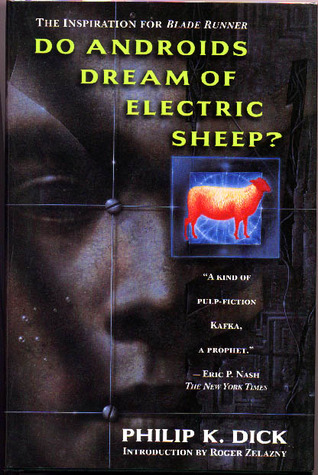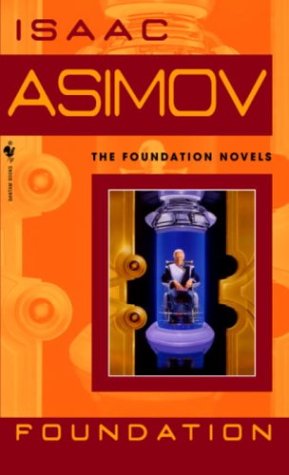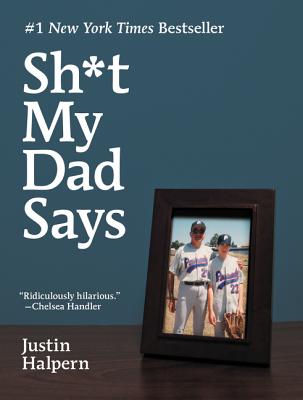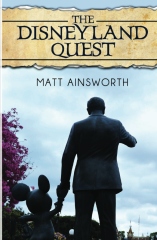September Book Blog 2013
(17) Do Androids Dream of Electric Sheep? by Philip K. Dick
(18) Ubik by Philip K. Dick
(19) Flow My Tears, the Policeman Said by Philip K. Dick
(21) The Man in the High Castle by Philip K. Dick
(25) The Minority Report by Philip K. Dick
Some novels are like spending the day at the beach. First, you just let the waves touch your feet a little, and you aren’t so sure if you want to commit to going in further. Slowly, slowly, you walk deeper and deeper, and as you do, your skin adapts to the cold, and the sensation of the living, moving water draws you further into the depths, until just your little head is popping out the water. Sometimes seaweed wraps around your legs. Sometimes a wave hits you hard, pushing you under the water. You emotions range from fear to absolute joy. Before you know it, the day is over, it is time to go, and you long to be there again. Reading a slowly developing novel takes trust in the author, and even if you have a slow start, you are seldom disappointed in the adventure.
This is not like reading a Philip K. Dick book whatsoever.
Reading a Philip K. Dick novel is like being unexpectedly thrown into an ice cold swimming pool, having the air knocked out of your gut as you desperately tread water back to the edge. You pull yourself back to dry land, soggy in your wet clothes, and wonder, “what in the world just happened to me?”
Another easy comparison is to say that a Philip K. Dick is reminiscent of the Twilight Zone. In one short episode, you are immersed in an alternate reality with immediate consequences to your emotions. You feel uneasy from the start, and by the end, usually you feel even more unclear about what just happened to you.
Philip K. Dick is a no-nonsense and concise soft science fiction writer. Despite an extensive and prolific writing career, each these novels are distinct individuals. Much like the Twilight Zone, there are common motifs, but each story is an unique landscape of characters, technology and situations.
Do Androids Dream of Electric Sheep? is about a bounty hunter on Earth in search of androids.
Ubik is about, well, it’s hard to explain what Ubik is about. One of the fascinating technologies introduced at the beginning is a storage method for dead loved ones. The living family members may visit the storage facility and have conversations with those preserved individuals after their deaths. Not exactly like Futurama’s glass bowl deceased celebrity heads, but close enough.
Flow My Tears, the Policeman Said is about an obscenely famous talk show host who wakes up to discover that he is no longer famous. In fact, he seems to be no one at all. He does not take the news too well.
The Man in the High Castle is Dick’s Hugo Award winning novel involving an alternate universe where Japan and Germany won World War II. This is not classic sci-fi, as its focus is not on aliens or robots or space travel. This is a case study of a set of characters living in a dystopian world where Nazi ideals are still alive and thriving.
The Minority Report is about the director of the “precrime” unit suddenly becoming a person of interest. This book is only about 100 pages and a quick, fast-paced and intriguing read.
Although I have many more Philip K. Dick novels to enjoy in the future, I would advise that Do Androids Dream of Electric Sheep? is a great first introduction to his writing style. If the silly title is a turn-off to you, just know that the movie adaptation of this book is called Bladerunner.
Do you have a Philip K. Dick book you love? I’d love to know where to go from here. VALIS and A Scanner Darkly are certainly on my to-read list.
Length: 104 Pages - 288 Pages
Content: Appropriate for All Adults
Genre: Science Fiction
(20) John Dies in the End by David Wong
The only thing I knew about this book was the title, so my attention was thoroughly piqued when the first scene of the book followed two young men as they drove a ghost from a young woman’s home. I thought, great! This is going to be a fun book about ghost hunting!
But then the book became a meandering journey of randomness. Lots of crazy monsters and gross visuals.
I don’t think this is a bad book. I’ve seen countless recommendations for it on the reddit book forum, and it has already been adapted into a film. It was just this style of storytelling didn’t fit my taste and I was bored. I felt like the story just jumped from one unlikely, ridiculous situation to another. Yet, when I reached the last one-hundred pages, it finally picked up and was pleased I finished it. I think this is a guy book.
Length: 479 Pages
Content: Language and Violence
Genre: Humorous Horror Fiction
(22) Stranger in a Strange Land by Robert A. Heinlein
In a nutshell, this science fiction novel is about a descendent from a lost crew of human astronauts. He is found living with martians and is fully immersed in their culture and traditions. He is reluctantly brought back to Earth, and begins to learn the language and adapt to the customs of his parent’s native planet. On Earth, he “groks,” meaning he attempts to understand the foreign concepts of religion, politics, money, law, human relationships and sexuality.
This is a difficult review, because the first half was incredible, and the ending was horrendous. As Valentine Michael Smith discovers what it means to be human during the first half, the reader also experiences these discoveries with him, and it is a very introspective experience to question the arbitrariness of our created human condition.
The problem with the story occurs when he finally fully “groks.” No longer is it a story about a childlike and naive human man learning how to be human. Now it is a story about free love, cults and religion, and is bogged down by a near halt in plot and story development. The last half of the book reads as scene after scene after scene of dialog in which his friends discuss what the former martian is working on in his new endeavours as a cult leader. I wouldn’t have minded the politics and preachiness of the last half of the book if something interesting could have happened. I read hundreds of pages of people’s conversations about what was happening, rather than experiencing it myself through great storytelling and descriptions.
Though largely disappointing, I was glad to have the experience of becoming human along with curious Smith.
Length: 532 Pages
Content: While there is little language or descriptions of sexuality, there are strong supporting motifs regarding free love and disapproval of religion
Genre: Science Fiction
(23) Foundation by Isaac Asimov
Foundation is a series of five linking short stories, beginning with the memorable psychohistorian Hari Sheldon, who comes under government scrutiny after statistically predicting the downfall of the empire within 300 years. The first story is great science fiction; the planet Asimov describes is so engrossing and captivating that you dig your feet into the story, ready to explore all of its magnificence. And just as soon as you’ve landed on this planet and fallen in love with it, you are removed. You are exiled to a boring planet that doesn’t have any metal so technological advancements don’t happen, and where the four subsequent stories are about writing an encyclopedia, trade relations, politics or war strategy. As I read the remaining stories, I kept thinking, I want to go back to the cool planet! I want to know more about that!
Oh well. This novel was written in 1951, so I have to give him credit for being innovative for his time.
Length: 256 Pages
Content: Appropriate for All Adults
Genre: Science Fiction
(24) Sh*t My Dad Says by Justin Halpern
Sorry about that title, but I really don’t know what else this book could be named, as it succinctly describes the content of this little memoir. Halpern became famous after starting a Twitter account by the same name, where he posted memorable quotes from his own father. This book of vignettes expands the quotes into short, hilarious stories about his highly-educated and frank father. Although his dad is brutally honest and has quite the potty-mouth, he obviously cares deeply for his children. If you don’t mind his language, I’d recommend this as a great book to read for 10 minutes at a time to get a deep, guttural chuckle. It’s also fun to read aloud; Greg and I were dying (dying = tears running down my face and hyperventilating from laughing so hard) as we read one of the final stories about his dad and his overfed dog, Angus. I am glad I purchased this one, because I can see re-reading these stories many times.
Length: 159 Pages
Content: Strong Adult Language
Genre: Humorous Memoir
(26) The Disneyland Quest by Matt Ainsworth
This was actually a novel I read a week prior to Gumball Rally (Gumball Rally is an annual Disneyland competition in May to see which team can ride the most attractions in 12 hours) but it somehow got left off my completed book list. I wanted to give a little love to this self-published, children’s book.
This story is about kids who become involved in a competition at Disneyland. They are given trivia questions about the geography of the park. Although the story is definitely meant for older children, I absolutely loved trying to solve the puzzles with the mysterious clues along with them (I was able to solve just one before the characters did). Having a familiar place as the landscape for a story was great fun. I think that recaps this book: just lots of fun. Looks like the sequel (California Adventure!) is available for loan through Amazon prime, so I’ll be checking it out soon!
The best audience for this book? Kids! I can see giving it to my daughters to read when they are older to get excited about an upcoming Disneyland trip.
The worst audience for this book? Someone who has never been to Disneyland. Unless you know the park well, you aren’t going to be enthralled by a story about kids running around a theme park trying to solve trivia questions with highly esoteric clues.
Length: 196 Pages
Content: Older Children
Genre: Fiction






No comments:
Post a Comment